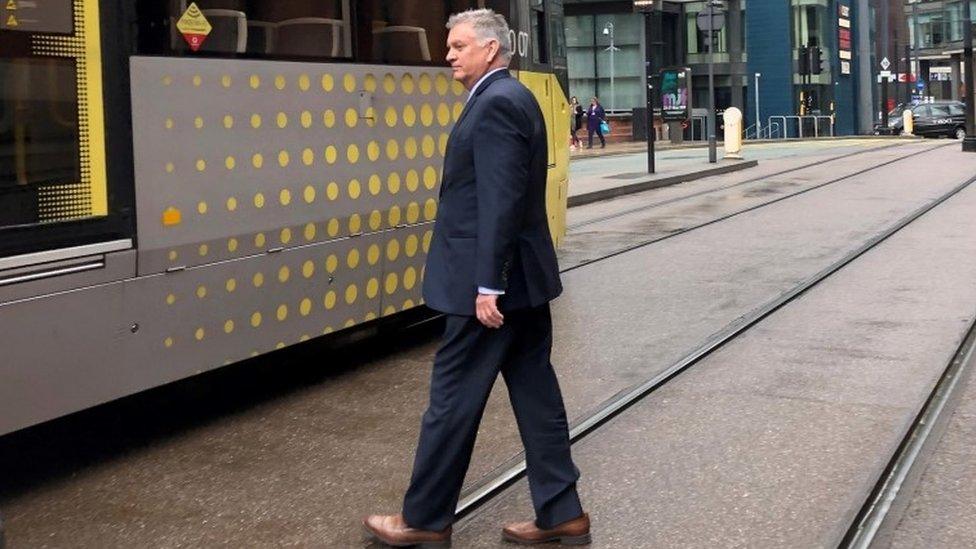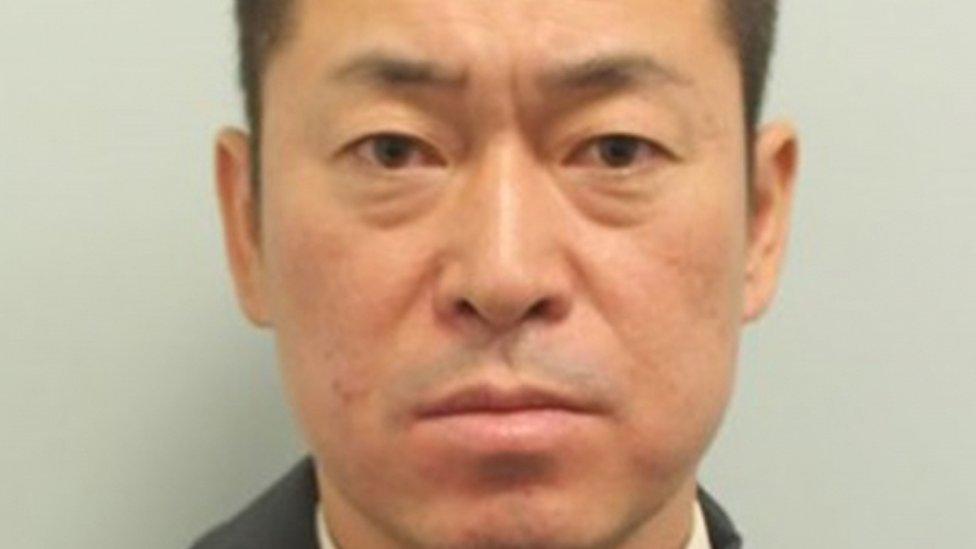Manchester Airport over-the-limit pilot could fly again
- Published

David Copeland had observed the industry's eight-hour "bottle to throttle" rule, his defence said
An alcoholic American Airlines pilot who was over the limit while in charge of a transatlantic flight has been handed a suspended sentence and could fly again.
David Copeland had been drinking rum in his hotel the night before he was due to fly from Manchester to Philadelphia, Minshull Street Crown Court heard.
He admitted performing an aviation function while impaired by drink.
The 63-year-old, of Pennsylvania, was given a suspended six-month sentence.
The court was told Copeland's employers were supporting him and he hoped to be able to fly again next year if he successfully completed a treatment programme after being diagnosed with alcoholism.
The father-of-two, from McMurray, had arrived at Manchester Airport on 7 February when a security officer noticed his demeanour and smelled alcohol on him, the court heard.

American Airlines apologised to passengers who were delayed
Greater Manchester Police held the flight as Copeland was preparing for take-off.
He was breathalysed but the sample failed and a blood test at the police station showed he had 27 mg of alcohol per 100 ml of blood in his system.
It is illegal for pilots in the UK to have more than 20mg of alcohol per 100ml of blood in their system. The American limit is 40mg.
The drink-drive limit in England, Wales and Northern Ireland is 80mg. In Scotland it is 50mg.
Judge Maurice Greene told the "experienced pilot" it was a serious offence because he held "the lives of many people in your hands".
'Unblemished record'
Henry Blackshaw, defending, said drinking a nightcap in his hotel room on top of a "modest amount of alcohol" at a meal with the rest of the crew had "in combination, caused his levels to be over the limit the following morning".
He said the pilot had observed the industry's eight-hour "bottle to throttle" rule and did not realise there may still be alcohol in his system.
Copeland had accrued more than 27,000 flight hours since the 1980s and had a "hitherto unblemished flying record", Mr Blackshaw added.
Judge Greene said if Copeland successfully completed six to eight months of the treatment programme he would be required to undergo a neuro-psychiatric evaluation to assess his fitness to fly.
Copeland was also ordered to pay £400 costs.
- Published8 February 2019

- Published29 November 2018
